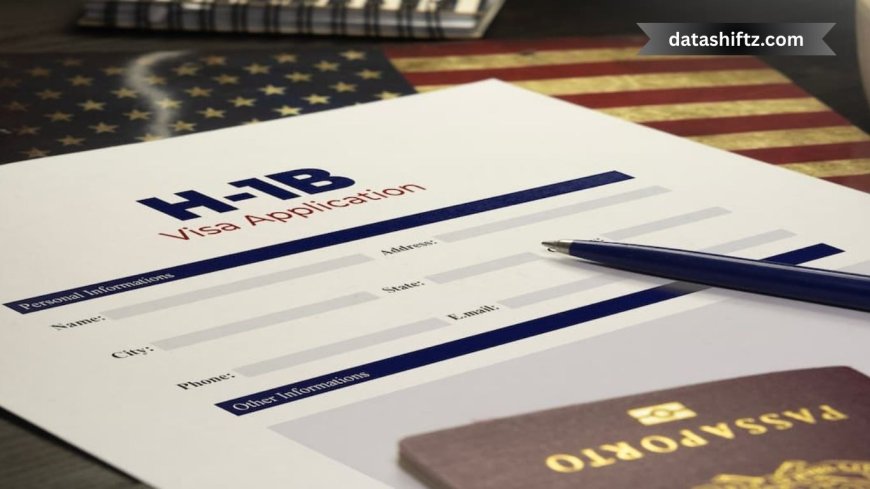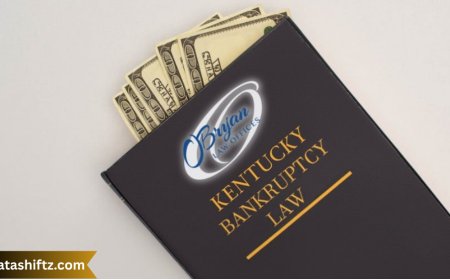Understanding H1B Visas: A Comprehensive Guide for Professionals

The H1B visa program is one of the most sought-after pathways for skilled foreign professionals to work in the United States. Whether you are a tech expert, an engineer, or a professional in specialized fields, understanding the nuances of the H1B visa is crucial to navigating the U.S. immigration landscape successfully.
What is an H1B Visa?
The H1B visa is a non-immigrant visa that allows U.S. employers to temporarily hire foreign workers in specialty occupations. These occupations typically require highly specialized knowledge and at least a bachelor's degree or its equivalent.
Features of the H1B Visa:
-
Issued for up to 3 years initially, with a possibility to extend up to 6 years.
-
Allows employment in specialty occupations such as IT, engineering, finance, healthcare, and more.
-
Enables visa holders to bring dependents under the H4 visa category.
-
Requires employer sponsorship.
Eligibility Criteria for H1B Visa
To qualify for an H1B visa, both the applicant and the sponsoring employer must meet specific criteria:
| Criteria | Description |
|---|---|
| Specialty Occupation | The job must require specialized knowledge and a minimum of a bachelor’s degree or equivalent. |
| Employer Sponsorship | A U.S. employer must file the petition on behalf of the employee. |
| Educational Qualifications | The applicant must hold at least a bachelor's degree or equivalent in a related field. |
| Wage Requirements | Employers must pay the prevailing wage for the occupation in the geographic location. |
The H1B Visa Application Process
Navigating the H1B visa application process can be complex and competitive due to the annual cap and high demand.
Step-by-Step Process:
-
Employer Files Labor Condition Application (LCA): The employer must obtain approval from the U.S. Department of Labor, confirming that hiring the H1B worker will not negatively affect the wages and working conditions of U.S. workers.
-
Petition Filing (Form I-129): After LCA approval, the employer files Form I-129 with U.S. Citizenship and Immigration Services (USCIS), including supporting documents like the worker's qualifications and job details.
-
Lottery Selection (If Applicable): Due to high demand, USCIS runs a lottery if the number of petitions exceeds the annual cap of 85,000 (65,000 regular + 20,000 for U.S. master’s degree holders).
-
Petition Approval: If selected, USCIS reviews the petition and issues an approval notice.
-
Visa Stamping and Entry: Once approved, the worker applies for the H1B visa at a U.S. consulate abroad, if outside the U.S., or applies for status change if already inside the country.
Important Dates and Caps
| Cap Category | Number of Visas | Notes |
|---|---|---|
| Regular Cap | 65,000 | Applies to all foreign workers in specialty fields |
| Master’s Degree Exemption | 20,000 | For applicants with U.S. advanced degrees |
| Exemptions | Unlimited | Non-profits, universities, and government research |
Benefits of Holding an H1B Visa
The H1B visa offers numerous advantages to foreign professionals seeking to advance their careers in the U.S.
Benefits:
-
Work Authorization: Legally work in the U.S. for a sponsoring employer.
-
Dependents: Bring spouse and children under H4 visa, with some eligible for work authorization.
-
Pathway to Green Card: H1B status can be a stepping stone toward permanent residency.
-
Multiple Employers: Possible to work for multiple employers with separate petitions.
-
Portability: Ability to change employers after the new petition is filed.
Common Challenges and Tips for Applicants
While the H1B visa opens doors to many, applicants often face challenges in the process. Awareness and preparation can improve chances of success.
Common Challenges:
-
Lottery Uncertainty: Due to demand exceeding supply, many petitions are rejected through the lottery.
-
Documentation and Filing Errors: Incorrect or incomplete petitions may lead to denial.
-
Employer Dependence: The visa is employer-specific, which limits job mobility.
-
Processing Delays: Sometimes visa processing can take several months, affecting job start dates.
Tips for Applicants:
-
Prepare complete and accurate documentation early.
-
Work with experienced immigration attorneys to navigate the process.
-
Consider employers who have a strong track record with H1B filings.
-
Explore premium processing for faster adjudication.
-
Maintain valid status at all times, especially if changing employers or extending the visa.
Conclusion
The H1B visa remains one of the most valuable options for highly skilled foreign professionals aiming to work and grow in the United States. Understanding the eligibility, application process, benefits, and challenges can significantly increase your chances of securing this visa. Whether you are an employee or an employer, careful planning and knowledge of the H1B visa framework are essential to navigating the complexities of U.S. immigration successfully.
If you are considering applying for an H1B visa or sponsoring an employee, it is advisable to consult with immigration experts to ensure compliance and maximize your chances of success.






























